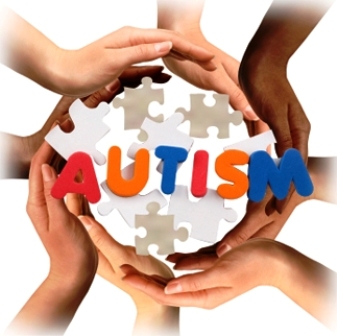The first time a parent is told that their child has autism, will be the moment that they’ll never forget. How did they not notice? I am sure you will think of this question. And the answer is many are not aware about Autism and its symptoms. But are you?
Autism is a mental disorder affecting children. The children have difficulty in social interactions, verbal and nonverbal communications and repetitive behaviours. They are often first identified in school-going children when it causes disruption in classroom or problems with school work.
What are the Symptoms of such disorder?
Many Autism symptoms, such as high activity levels, difficulty remaining still for long periods and limited attention spans, are common to young children in general. The difference in children with Autism is that their hyperactivity and inattention are noticeably greater than expected for their age and interfere with functioning at home, at school, or with friends.
A child with Autism may-
- Daydream a lot
- Appear to not listen when being spoken to
- Have difficulty following instructions
- Not able to stay seated
- Squirm or fidget
- Be easily distracted
- Talk too much/interrupt
Diagnosis can be challenging because symptoms differ from child to child. Diagnosis involves gathering information from parents, teachers and other often involving checklists, and a medical evaluation (including a vision and hearing screening) to rule out other medical problems.
But what causes this mental disorder?
No specific cause has been identified yet, but there are possibilities of genetics contribution.
Also other factors that may cause this include being prematurely born, brain injury; and the mother smoking or using alcohol, or having extreme stress during pregnancy.
Treatment-
A combination of behavioural therapy and medications works best for most patients.
Therapy:
Therapy usually consists of teaching parents and teachers how to provide positive feedback for desired behaviours and consequences for negative ones. Although behavioural therapy requires careful coordination, it can help children learn how to control their behaviour.
Medication:
There are two main types of medication for Autism:
Stimulants and non-stimulants.
Stimulants primarily focus on increasing the neurotransmitter dopamine in the brain, particularly in the prefrontal cortex.
Non-stimulant drugs can also be used to treat ADHD. Non-stimulant medications such as various antidepressants affect not only dopamine, but also other neurotransmitters such as norepinephrine and serotonin. Antidepressants are sometimes used in patients who are not able to tolerate stimulant medications.
Some children experience dramatic relief of symptoms with medication and this relief continues with ongoing treatment. Other children may experience only partial relief or the medication may seem to stop working. A change in medication or adjustment in dose may improve the response. Other children and families may benefit from additional therapy specific to problem behaviours.
Parenting-
It is important that parents are calm and have a structure established routine that would help their child. It may be helpful to-
- Maintain routines
- Focus on their child when talking to him/her
- Make sure to use simple words/demonstrate
- Calm behaviour
- Maintain communication with the child’s teacher
- Focus on effort and reward good behaviour.
The main goals when treating children with autism are to lessen associated deficits and family distress, and to increase quality of life and functional independence. No single treatment is best and treatment is typically tailored to the child’s needs. Have patience and work towards creating a better environment for the child to communicate and understand normally.
– BY Harshali Amin






0 Comments